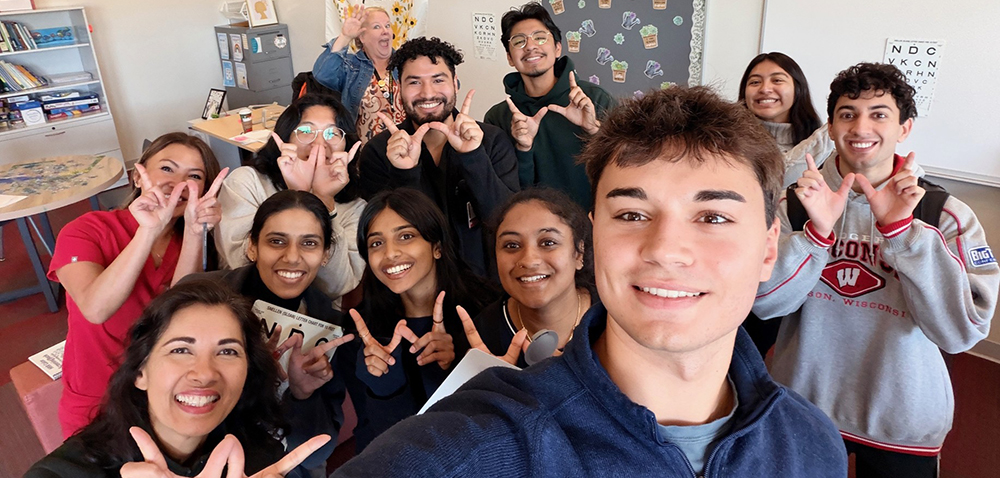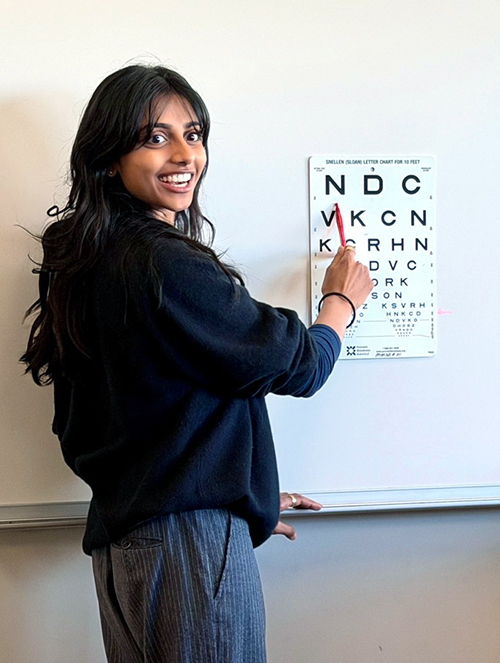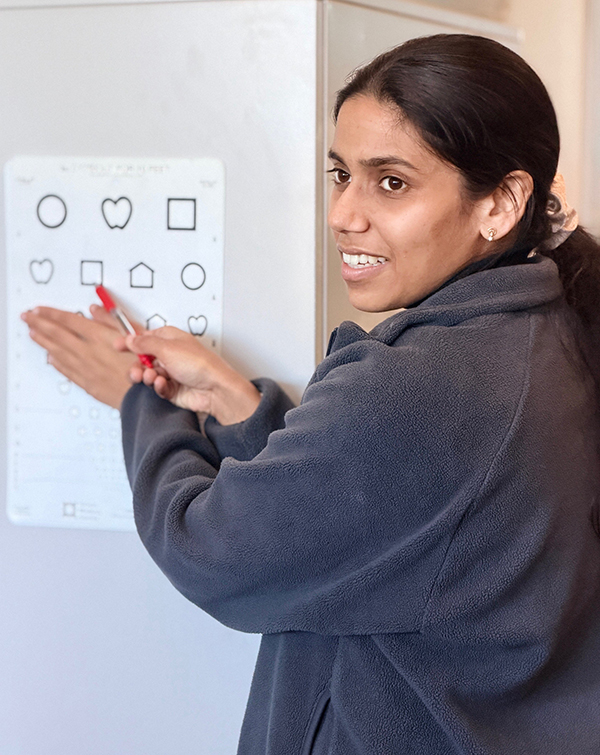In just two hours, a dedicated team of volunteers—undergraduate and graduate students, medical students, ophthalmology residents, staff, and faculty—screened the vision of 150 third-, fifth-, and eighth-grade students at a Madison, WI school last week.
The vision screening at Lori Mann Carey Elementary and Badger Rock Middle School was one in a series conducted throughout the fall of 2025.
The E.Y.E. (Empowering Youth through Eye Care) program is the result of an ongoing partnership between the University of Wisconsin Department of Ophthalmology and Visual Sciences (DOVS) and the Madison Metropolitan School District (MMSD). Now in its fifth year, the collaboration has provided free vision screenings to more than 4,500 students across Madison schools.
“School vision screening programs play a vital role in addressing a critical public health need and advancing health equity across Wisconsin,” said Dr. Cat Burkat, professor of ophthalmology and founder and director of the program. “By meeting the vision care needs of children in our own community, we’re also contributing to a broader understanding of health equity—locally and globally.”
Across Wisconsin, many students still face barriers to accessing eye care. The state currently lacks a mandate for school-based or community vision screenings, leaving many children unscreened. Nearly 50,000 Wisconsin students are English Learners (EL), and in MMSD, about 27% of the district’s 25,000+ students are EL students—groups who may be particularly affected by inequities in access to care.
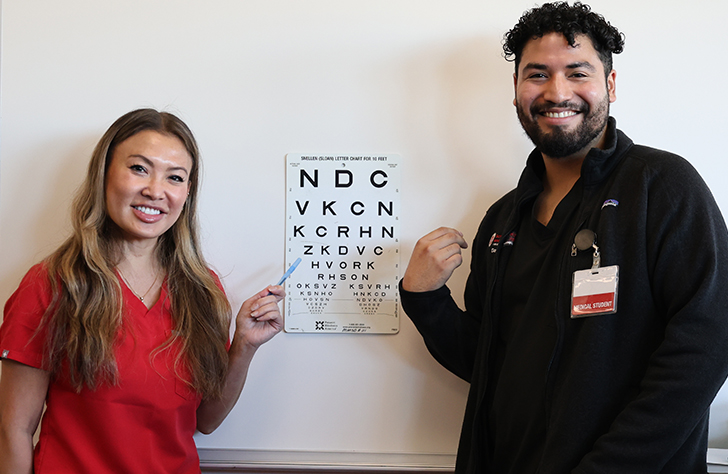
The E.Y.E. program aims to close that gap. By coordinating local screenings, the program identifies children who may need corrective lenses and connects families with the resources to get them.
The screenings are also an educational opportunity for UW–Madison students, who gain valuable hands-on experience working with pediatric and English Learner populations. “It provides an opportunity to develop cultural competence and clinical skills in real-world settings,” said David Aguilar, UW DOVS/MMSD screening lead and second-year medical student. “By participating, we’re learning how to better serve diverse patient populations.”
“The strong partnership between DOVS and MMSD makes it possible to complete the first round of vision screening seamlessly and in one day,” said Jerri Ustby-Cruz Bye, the school nurse at Lori Mann Carey Elementary and Badger Rock schools. “It was extremely helpful that a number of the volunteers spoke Spanish, since our school has a relatively high percentage of non-English-speaking children.”
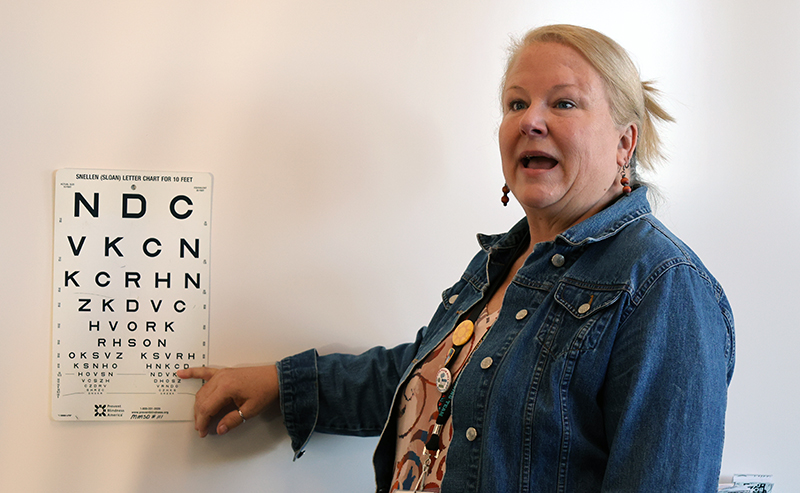
“MMSD school nurses partner with a variety of organizations each year to complete vision screenings for our 4K, Kindergarten, 3rd, 5th, and 8th grade students,” added MMSD Health Services Nurse Coach Sara Hayes. “The support of medical students in our community to complete these screenings is truly invaluable. Their skills and enthusiasm expand our capacity to reach more students and ensure referrals are made as early in the school year as possible.”
For Aguilar, the mission is also deeply personal. “Until fifth grade, I didn’t know I needed glasses, and my academic performance suffered,” he shared. “My family lacked health literacy, and living in rural Wisconsin meant regular check-ups with an optometrist weren’t accessible. A school vision screening changed my life—it identified my need for corrective lenses, and after getting my first pair of glasses, I remember how my world changed, and my grades improved.”
That experience inspired Aguilar to help bring similar opportunities to others. “Dr. Burkat, who shares the same commitment to addressing health inequities, was eager to collaborate,” Aguilar continued. “And I’m so grateful to have helped start this program—and to give other students the same chance for success that I had by addressing gaps in their health.”
